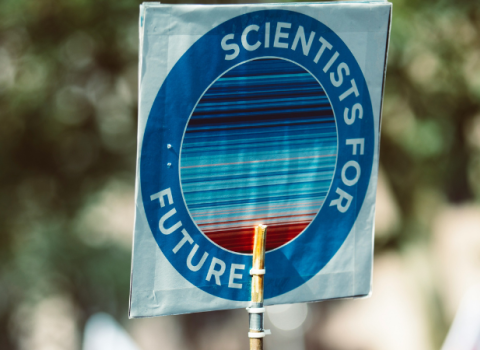The ongoing and comprehensive digital transition of society can and must contribute towards the green transition, and the digital transition must also become greener, says the head of the University of Oslo’s Centre for Computational and Data Science

Morten Dæhlen, leader of University of Oslo’s Centre for Computational and Data Science
In her State of the Union speech of 2023, Commission President Ursula von der Leyen underlined the fact that the European Green Deal is at the centre of the European economy and “unmatched in ambition”, with the goal of transforming Europe into a modern, resource-efficient, and competitive economy with net-zero emissions by 2050.
This is a great ambition that I for one, give my wholehearted support. But we don’t have much time: everyone knows that we have to go through a significant transition in order to build a sustainable future.
Digital research and the green transition
In a paper published in 2023, the Guild of European Research-Intensive Universities set out the role of digital research in realising a successful green societal transformation. The paper laid out the vision for how digitalisation can act as a catalyst for energy system reform.
There are numerous practical examples, for instance, using digital technologies, we can optimise energy consumption, transitioning from a one-size-fits-all energy distribution system, to tailored, efficient usage patterns.
Projects like EXAMON are emblematic of this transition, where artificial intelligence is harnessed to enhance the performance and energy efficiency of high-performance computing systems.
In another example, the SPATUS project is applying digital research to develop energy systems that manage the variable inputs coming into the electricity grid from renewable energy sources.
Initiatives like these are practical examples of how the digital transition can reduce energy consumption.
Twin transition
The urgency of the twin digital and green transitions stems from the stark reality of biodiversity loss and the lasting damage of climate change. These are not distant probabilities but here and now crises. They demand immediate and dedicated action.
The Guild’s paper emphasises the need for green digital solutions to reduce the digital sector's carbon footprint - which is now on par with that of the aviation industry.
The ForestCare project stands out as an example of how digital tools can help to preserve biodiversity through sophisticated ecosystem monitoring. This is a promising development, but the scale and complexity of environmental challenges imply that much more research is needed. We need to better understand the interactions between digitalisation, energy consumption, and ecological impacts.
The road to 2050 and net-zero requires the research policy landscape to be redrawn. In Europe, the intense competition for grants in Horizon Europe and its predecessors has promoted and strengthened research excellence.
However, the project-based approach has trickled down in national research funding systems, reducing institutional and long-term funding and requiring researchers to continuously apply for short-term funding. This funding landscape perpetuates a individualistic, competitive environment that can stifle collaborative, interdisciplinary research that is essential for the twin transition. It may also have long-lasting negative effects on the attractiveness of research careers and on the quality of research in Europe.
In order to deliver the solutions required to reach a just twin transition, research policy needs to evolve and to reduce competition and foster cooperation, across countries and across disciplines, and among researchers. The Guild's suggestions point to policies that encourage collective efforts and interdisciplinarity, which are essential for addressing the dual challenges of digitalisation and environmental sustainability.
A shift in focus from competition to collaboration could unlock solutions and drive forward the twin transitions in a manner that is equitable and inclusive.
Policy recommendations
A robust digital research agenda is vital to advance the twin transition. Here are some recommendations:
- Energy-efficient digital infrastructure: the digital sector should move towards low-energy models, minimising energy usage without compromising service delivery
- Data sharing and minimisation: by promoting data-sharing initiatives, like the European Open Science Cloud, and reducing the amount of data stored and transported, we can significantly lower the energy and resource demands of data centers and networks.
- Inclusive digital governance: research into digital governance is crucial to ensure that the digital transition is fair, inclusive, and accessible to all segments of society, bridging the digital divide.
- Renewable energy integration: digital solutions should facilitate the integration of renewable energy into national grids, supporting the transition to a more sustainable energy infrastructure.
The Road Ahead
The twin transition is not just a policy framework. With the digital revolution poised to play a pivotal role in the green transition, the policies we implement and the research we prioritise today will determine the world of tomorrow. A just transition, underpinned by a robust digital research agenda and a collaborative research policy, is crucial if we are to meet the 2050 climate goals.
Morten Dæhlen is leader of University of Oslo’s Centre for Computational and Data Science





 A unique international forum for public research organisations and companies to connect their external engagement with strategic interests around their R&D system.
A unique international forum for public research organisations and companies to connect their external engagement with strategic interests around their R&D system.